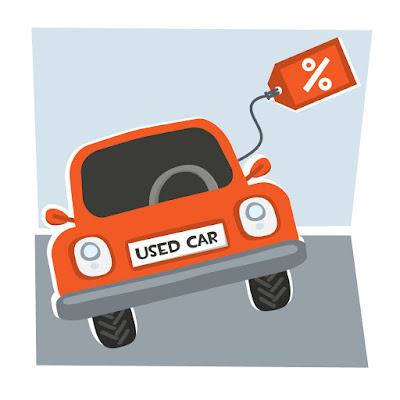OKEMOS, Mich. –– The car purchasing process is much more navigable when you know why you want a particular vehicle and understand what makes it, versus another vehicle model, the best fit for you. But before you look at trim choices or optional specifications that add flair –– and cost –– to the car you're interested in, you need to answer a foundational question that will illuminate the path for your car buying journey: Should you buy a new car or used car? In this post we'll explore the major disparities between new and used cars so you can make a solid, unwavering decision for your next car purchase
.
What differences exist in the overall costs between new and used cars?
The first thing you’ll consider when deliberating
between buying a new or used car is the cost difference. This
isn’t so simple, as some used cars are more expensive than new cars. However, more often than not used cars are cheaper. New cars have new technology, features, design, performance specs –– essentially new everything –– which frequently makes them cost more. In sum, how much "new" are you willing to pay for?
Are there differences in financing new or used cars?
If you want to finance your next vehicle you need to understand its interest rate rests on its projected resale value, which is
determined by how much the vehicle depreciates over time. Most banks expect a new car to depreciate by
$9,000 within five years. Even so, the younger the car, aside from a few exceptions, the easier it’s going to be to sell, and
the more money it will be sold for.
Used cars tend to have higher interest rates for a number of reasons: they've already depreciated and their resale values
are already much lower than those of new cars; they're more prone to
major mechanical issues and hefty repair costs; and there's a higher risk that used car buyers will bail on their loan, although that isn’t necessarily the norm. If you finance a used car, your lender needs to make up for the
uncertainty of these factors, and the high interest rates attached to used cars
are a way to cover that risk.
Are all used cars
gas-guzzlers, and is every new car fuel-efficient?
Gas mileage is one of the biggest factors to consider when deciding between a new car or used car. You could purchase a used sedan
that achieves 23 miles per gallon in the city and reap the benefits of fuel-efficiency; or you could go with an all-new SUV twice the size that peaks
at 16 mpg on the highway and is best friends with the gas pump.
With a used car, you might end up saving your gas money instead of spending it in excess. Rather than assume all new cars are fuel-efficient, research whether the technology in a new car will save you money at the pump or not.
With a used car, you might end up saving your gas money instead of spending it in excess. Rather than assume all new cars are fuel-efficient, research whether the technology in a new car will save you money at the pump or not.
Do new or used cars cost more to
insure?
Considering used cars cost more to finance than new cars,
you might assume insurance costs would follow suit. However, the opposite is
true; new cars cost more to insure than used cars. Despite the presence of new
technology and added safety features you would assume make new cars less
of a liability and, therefore, less to insure, these features consequently give
new cars a higher value. This inevitably hikes up the cost of car insurance.
Does a used car
require more maintenance than a new car?
Although it’s entirely possible that a used car will
be just as reliable and durable as a new car, it’s not as likely. A used car will probably lead you to the mechanic more often than a new car will, and that could seriously attenuate your budget.
New cars cost what they do because they’re up-to-date. But
that price tag also includes a warranty, which covers maintenance and repairs
for a set amount of time. The nice thing about a warranty is you don’t
have to worry about most maintenance and repairs that are often covered by the dealership or OEM (original equipment manufacturer). As a caveat, remember that warranties don’t
last forever.
With used cars, the onus of maintenance and repairs falls on
you. Things could get pricy, depending on how bad the need is for repairs. Then
again, there are Certified Pre-Owned cars –– used cars that typically come with an attached warranty –– and this could be a middle-ground option worth looking at.
It’s time to make a
decision.
We know how tough it is to decide whether you should buy a new car or used car. There will be other factors that go into your decision,
but for now these are some of the major points to consider as you continue your
journey through the process. If you need help or want more thorough
advice, feel free to stop by our used car dealership serving East Lansing, Mich., where our staff will help you decide between buying or leasing one of our new Chevy vehicles or used vehicles.
Hank Graff Chevrolet Okemos is committed to providing you with integrity and convenience, all close to home. Let our friendly team of Chevy professionals at Hank Graff Okemos help you –– simply call us at (517) 349-8300 or visit our showroom, located at 1748 W. Grand River Okemos, MI 48864. We’re just minutes from Lansing!


No comments:
Post a Comment